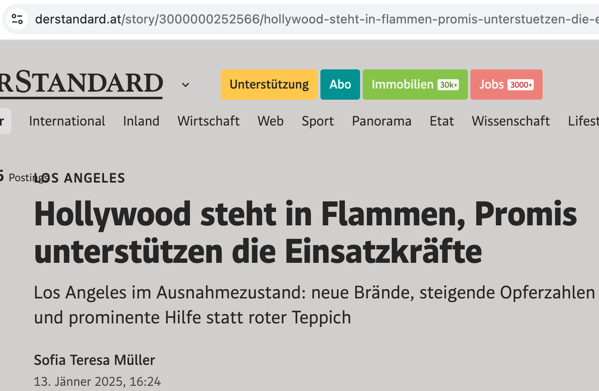Game of Chicken - Part 2
via exxpress.at, via FT, via substack
This is an interesting path for news to travel…
A new report by Russia analyst and former banker Craig Kennedy highlights the huge growth in Russian corporate debt. It has soared by 71 per cent since 2022 and dwarfs new household and government borrowing [“$210 to $250 billion of this [71%] surge consists of compulsory, preferential bank loans extended to defense contractors—many with poor credit—to help pay for war-related goods and services.”].
Notionally private, this lending is in reality a creature of the state. Putin has commandeered the Russian banking system, with banks required to lend to companies designated by the government at chosen, preferential terms. The result has been a flood of below-market-rate credit to favoured economic actors.
[…]
The upshot is that Chemezov’s and Nabiullina’s problems are not an error that can be fixed but inherent to Putin’s choice to flatter public finances and keep a (high) lid on inflation. Something else has to give, and that something else includes businesses that cannot operate profitably when borrowing costs exceed 20 per cent.
Putin’s privatised credit scheme, meanwhile, is storing up a credit crisis as the loans go bad. The state may bail out the banks — if they don’t collapse first. Given Russians’ experience of suddenly worthless deposits, fears of a repeat could easily trigger self-fulfilling runs. That would destroy not just banks’ but the government’s legitimacy.
Putin, in short, does not have time on his side. He sits on a ticking financial time bomb of his own making. The key for Ukraine’s friends is to deny him the one thing that would defuse it: greater access to external funds.
src: click (FT)
If the case, thats a really interesting game of chicken proposal.
Should the west risk another russian banking default?
Just to discredit the FSB? And give Ukraine a chance of getting territory back?
5% Nato spending increase might not be enough… 😉
Its like everything points at “negotiate now”, but the hardliners that want to “win it all” just got more fuel to really make russian state collapse happen… 😉
But even more interestingly, that collapse wouldnt be a real russian state collapse, but mostly a collapse of its banking sector, so depending on what russia is wanting to cut off early… Well - Putin might be gone, but otherwise - mostly reputational harm done. And its banking sector toast, and its companies that cant borrow at a capital cost rate of 20% and be sustainable toast, and its public freaked… But then after all russia is a natural resources based economy.
So how much do you want this. 🙂
Also, how does “Die Presse“s Putin doesnt want to negotiate look now? 🙂
(Suck it idiots.)
Russia couldnt stop financing the war this way easily, as if it does its own reputation risk skyrockets (population reactions, financing risks), but if its out in the open that risk kind of vanishes, but then russia openly will not be able to finance the war for that much longer…
The idea always kind of was to reduce the exposure to that risk over time - and not during the war… 🙂
But then how many viable businesses does russia have, including banking that cant refinance at an above 20% capital cost rate? That are structurally relevant?
As in - ok, some banks default - so what, lets put the Domino effect theory into test - in a largely state managed (in a sense) economy…
But then as soon as Russia does, it would be like you’d try to do a banking crisis recovery, while the entire western financial world is trying to exploit your vulnerabilities.
So wouldnt that make it more likely for Russia to cut off the private sector early?
Geez, this is a mess.
And the most problematic part?
To incentivize russias military producers to bankrupt the banks you’d have to ramp up the western military production for years - and show no signs of ever giving that up at an above current level of investments needed.
So the West is now arming up Ukraine and itself to make russias war industry default, so some of their banks can crash - or have to be renationalized, so their public is loosing trust, so the defaults spread throughout their banking system, so we can have another shot at Russia in the 90s during an economic default, but this time with the FSB folks kind of firmly at the helm, and seeing this coming?
Dont want to be in the european hawks shoes these days… 🙂 What, are you chicken?! 😉 Russian people will love you for that! (Granted, they’ll hate Putin more… 🙂 )
Also we are still only talking about risk management here - so if Russia manages to mitigate the default risk for 3-4 years, it might not even matter for the outcome of the war. 🙂
edit: HOLY FUCKING SHIT, this gets better. 🙂 (Aside from the point, that someone lied to German military command, that the amount of future russian tanks is a high priority item on the list - and they in return lied to -- the entirety of europe, by repeating that.)
Russia solves its worker shortage problem that way! 🙂 So they just do it early, sacrifice their private sector, and some of their banks, and become the Chinese Warrior Sect that way. Of course someone has to pay the political price, so Putin is gone, but hey - no structural issue for their military production in the short term, und over the long term China might be interested in such a partner… As long as they can maintain that they have nothing to do with russias political decisions of course.
Boy oh boy - is that a europe that I want to see…
Might have been a bad idea to publish this in the FT actually -- next step for russian propaganda would be to spread that article as the reason for why the russian banks had to default. The west directly aimed at the weakpoint! Cant trust those westeners, you see Vladislaw, this is why you and your father have to work in weapons factory!
Boy is that a europe I want to see…
edit: Es gibt aber natürlich auch wieder gute Nachrichten:

Beyoncé schrieb dazu auf Instagram: “Los Angeles, wir stehen an eurer Seite.”
src: click (Der Standard, wer sonst.)
Danke Promis, danke Beyoncé!
Auch die NYT stellt sich heute über dem Falz die richtig wichtigen Fragen:

src: click

